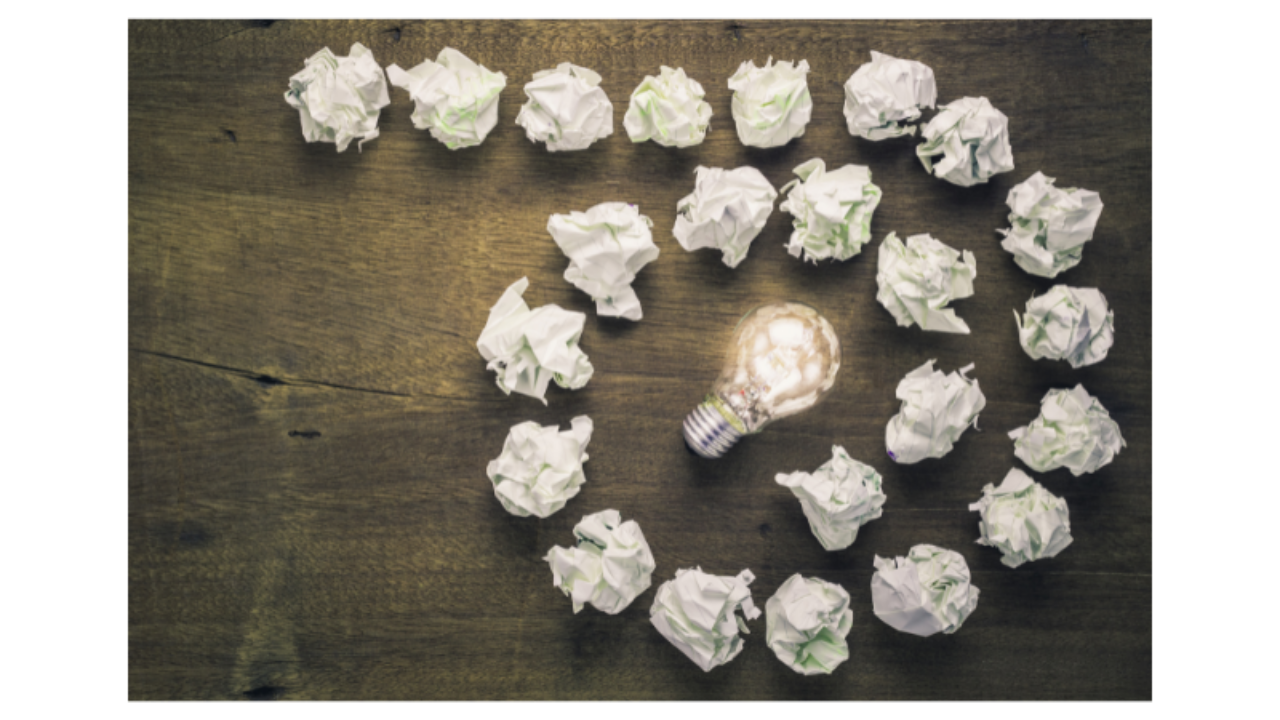Homeopathy Tips Newsletter
Bad vs Wrong Prescriptions in Homeopathy

No homeopath always gives the correct prescription the first time. Some homeopaths feel that a wrong prescription is also a bad prescription. I disagree. I feel there is a distinct difference between a bad prescription and a wrong prescription. This is all up to the homeopath doing the prescribing.
I often tell my students that they can not do homeopathy wrong if they are following some good guidelines for the practice of homeopathy. But even with good guidelines, there is a point where the homeopath must make a decision about the remedy and what to do. This is often made to be too complicated on the part of the homeopath. Homeopathy can be simple but this all depends on the homeopath's state of mind, knowledge, and intention.
A bad prescription is one that is made without certainty. The most common pitfall for new homeopaths is a lack of knowledge and the feeling they need to do something with the client. Unless it is an emergency that requires quick action, any undue stress on the ...
When to Stop the Remedy in Homeopathic Prescribing

In some systems of posology, the part of medicine concerned with dosage, giving the remedy on a daily basis is a very good idea especially if there are any obstacles to cure. When the person starts to lose their ability to respond to the remedy then it is time to change the potency. But how do we know when to stop the remedy altogether?
Giving the remedy on a daily basis, even in chronic cases can provide a daily inspiration to the client. Each day it is akin to asking the client to "do just a little more healing". Over time the small daily responses to the remedy can add up to significant change and usually without extreme aggravation. I find the application of this idea very useful and beneficial for most of my clients.
After several months, although this is not empirical, the client usually stalls in their response to the remedy. When it seems the forward movement has reached a plateau, it is time to change to a higher potency and continue with this method. Sometimes the client wi...
Prejudice: A Pitfall in Homeopathic Prescribing

The most common pitfall in homeopathy is prejudice. This is prejudice on the part of the homeopath whose pitfall is not seeing the case clearly because of ideas in his/her mind that are not of the essence of the case. Let's examine the roots of this prejudice and what it means.
First the definition of prejudice; according to Mirriam-Webster's dictionary prejudice is an opinion made without adequate basis. To damage by a judgment or action. To judge before full hearing or examination.
Hahnemann spoke of the unprejudiced observer in Aphorism 6 of the Organon of Medicine; " The unprejudiced observer well aware of the futility of transcendental speculations which can receive no confirmation from experience be his powers of penetration ever so great, takes note of nothing in every individual disease, except the changes in the health of the body and of the mind ( morbid phenomena, accidents, symptoms) which can be perceived externally by means of the senses; that is to say, he notices only...
Mind and Disposition in Homeopathy

One of the hardest parts of being a homeopath is understanding the mind and disposition of a person. Everyone is different and everyone has mental symptoms. These are often very common symptoms that may or may not fall into the class of a dis-ease or something that is asking to be healed. It requires great clarity to see the normal from the abnormal mental symptoms of a person. Sometimes they can be very subtle.
One of the most common symptoms of the mind and disposition is anxiety. The most common report I hear from my clients is that the reason they are feeling bad is because of stress. This tells me nothing about their sufferings. It is then I ask them to tell me stories about their stress that can paint the picture of their suffering. Usually, the end result of this is that some level of anxiety is present. The common themes of this anxiety will then lead me to understand the symptom and choose the correct rubric to describe it.
It can be difficult to differentiate a common sympt...
Materia Medica or Homeopathic Software?

Of all the major advances to modern homeopathy, the single greatest has been bringing the Repertory and Materia Medica into a computer format. Now with very usable tools we can analyze and search mountains of homeopathic information and have results in a fraction of a second. This makes the homeopath's job so much easier, but there are risks to having so much information so quickly.
We can all thank David Kent Warkentin of Kent Homeopathic Software for bringing us homeopathic computer programs. He was the very first programmer and the pioneer of homeopathic computer programs. His programs, MacRepertory and ReferenceWorks, are still the industry standard for homeopathy. Since David's passing Kent Software is now under the new name of Synergy Homeopathic Software. I have been using these programs since the early 1990's and the advances since then are truly astronomical. I still have my very old, thick, Apple laptop computer with the program still working. Someday this will be a real hom...
What Healing Looks Like During Homeopathic Care

Finding what is asking to be healed is one of the big challenges for homeopaths. But once the remedy is given, how do we know that it is really working? It helps to have a guide to knowing what healing looks like. It is different for every case.
Constantine Hering gave us his Hering's Law of Cure which describes how healing follows most naturally. I have seen this in action many times. His precepts are;
- We heal from the top downward.
- We heal from the inside outward.
- We heal the most vital organs first to the least vital organs.
- We heal from the most recent symptoms to those most distant in time.
These do not necessarily need to follow any particular order and can be happening simultaneously in a case.
Each case is different and has its own expression of intensity. When we give a remedy we do not know the response the person will have to it. Therefore it is very important to observe the reaction. Sometimes it is very difficult to understand what is happening especially if the...
Antidoting in Homeopathy

We often hear the phrase from homeopaths, "He antidoted his remedy". This implies that the remedy has now somehow changed. It is a misunderstanding to think that anything about the remedy has changed. Let me explain.
When we give a remedy, the energetic medicinal dis-ease, it can only work if there is resonance and the remedy is homeopathic. This means carrying the energy of similar suffering. It is only through this resonance that the vital force could respond. When we are taking a remedy and in response to it, we call this healing. It is because of the observable response that we know something is happening.
Many times after a single dose has been given and we see that the remedy is working, the person will report that it suddenly stopped working. They no longer feel the positive effects of the remedy. It is the homeopath's job to find out what has happened. Sometimes it is simply that the vital force is no longer in response to the remedy and it needs to be repeated. Other times i...
True Healing Takes Time In Homeopathy

One of the biggest myths about healing is that it happens as an event. The belief of most people in the western world is that when they are sick, they can just take a drug, and feel better very quickly and that is the end of it. We know this to be a little different from the homeopathic perspective.
My teacher Vega Rozenberg taught his students repeatedly that "Time is Mercy". This Kabbalah understanding really does apply to the healing process. It can make all of the difference in how you view a case and proceed when you know this. If you have a clear understanding of what is asking to be healed, then it is easier to know where a person is in their healing process.
I find often that in chronic or constitutional prescribing the client will be feeling much better after some period of time. My expectation is that there is noticeable movement in the case after one month. But many times it is within a few months that the client feels that they are so much better they want to ...
Homeopathic Prescribing in Stages of Health

There are three main stages of health that any individual may express. The first stage is good health which would indicate constitutional homeopathic prescribing. The second stage would be more acute/chronic where pathology has taken over. And the third stage is shortly before death. It is good to understand these stages of health when doing any evaluation of your client.
The first stage of health is the stage that most homeopaths are prescribing for. This is the stage where the person is in fairly good health and looking for better health. They may have occasional colds or flu and some aches and pains but is in fairly good health with strong vitality. This is where prescribing becomes for the person in their totality and the homeopath is looking for patterns in the person's life that may lead to a very good homeopathic remedy. At this stage, it is very important to do good homeopathy although the person does not depend on the results to maintain a healthy or happy life. This is the s...
Approaching Death With Homeopathy

As homeopaths, our highest goal is to cure in a gentle way without causing harm. Many times we see miracles of healing. To expect to save a life is a very real expectation for homeopaths. Yet we do not get to choose the length of a person's life or whether they heal or not. Even the best of homeopathy may not always save a life. How then do we treat a person when death is approaching?
There are really only two ways that death comes to visit us; suddenly by trauma or slower as a result of dis-ease. When we are involved in a trauma that is life-threatening always give remedies based on the trauma. If it is not the person's time to leave their life then all attempts to save their life will be utilized by the vital force. Since we do not get to choose it is always best to continue to treat until death does occur. The remedy that may help the best will be for the trauma.
The other way that death can approach is when dis-ease has finally brought the person to their end days. This is a diff...

